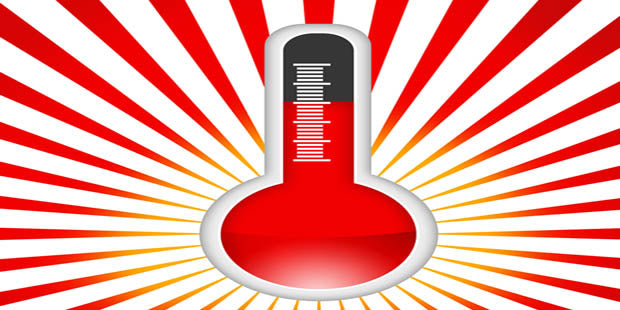Are you too sick to run?
You feel like crap. All you want to do is put on your most comfy sweats and curl up in front of the TV. But a little voice inside your head is urging you to get up, get out and get going.
So how do you know when you're too sick to run? And will running help you or hurt you?
People who exercise are generally healthier than people who don't, so it should be no surprise that they tend to catch fewer colds and get sick less. But what if you’re already sick? The American College of Sports Medicine believes that moderate exercise when you're sick can help. In fact, many experts agree that moderate exercise can cut the time you spend suffering from a cold in half!
So how do you know if you're too sick to run?
It's easy: use the "neck rule." Mentally divide your body into two parts: above neck and below neck. If your symptoms are all above neck (stuffy head, runny nose, scratchy throat) then it's generally safe to run. If your symptoms are below neck (chest congestion, achy body, fever) you need to hang up your shoes and rest. Especially if you have a fever, exercise can dehydrate you, which won't help you get any better.
Even if you are only experiencing above the neck symptoms you still need to watch for signs that something is wrong: dizziness, nausea and profuse sweating are the top three. And, if your head hurts so bad you're seeing stars, it's probably a good idea to take a day, or two, off. Even if it's only above your neck, you still need to use your head.
When you’re sick make sure that you stay hydrated. Medications such as antihistamines, or anything that promotes nasal drainage, can add to dehydration. If you do need to take one of these medications wait until after you run or drink extra fluids.
Don’t add extra stress
If your body is fighting off a cold or virus then running is often better than going to the gym, your body is already under stress, therefore more susceptible to new illnesses. Public gyms are notorious for spreading “gym germs.” If you can’t run on your own outside make sure that you wipe down any equipment before and after you use it, especially during cold and flu season. It's hard to remember but try not to touch your face after using equipment (it's easier for germs to get in that way). Whatever you do, don’t use the water fountain at the gym; use a cup instead of drinking from the faucet. You can ask your gym to supply paper cups if they don’t already.
No matter what, take it easy. Listen to your body and only do as much as you can. As with most other things, moderation is the name of the game. Start slow or less intense and only increase your intensity as your symptoms decrease. If you start feeling better, that’s great. If you don’t, pull back, going too far can weaken your immune system and keep you sick longer.
Sniffling, Sneezing, Coughing, Aching... Running?

